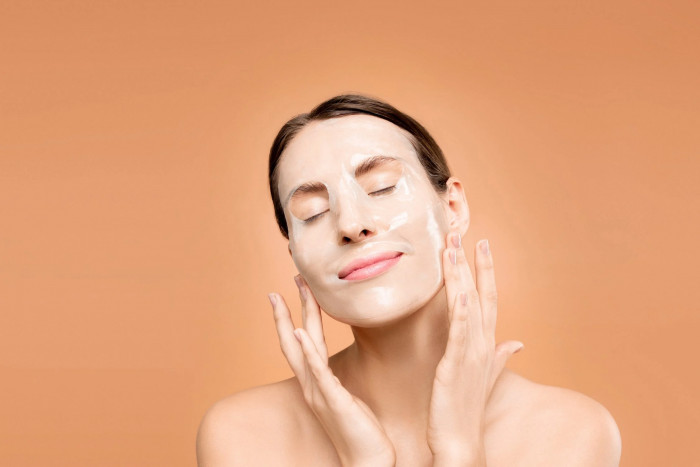Niacinamide, also known as nicotinamide or Vitamin B3, is a water-soluble vitamin that plays an important role in many physiological processes in the body. It is a part of the Vitamin B complex, which also includes Thiamine (B1), Riboflavin (B2), Pantothenic acid and Pyridoxine, Biotin, Folic acid, and Cobalamin (B12).
Niacinamide is naturally found in many food sources, such as meat, fish, nuts, and grains. It is also commonly used as a dietary supplement to treat conditions like niacin deficiency, high cholesterol, and diabetes.
In addition to its health benefits, Niacinamide is also widely used in skincare products due to its many benefits for the skin. It can help improve the skin's barrier function, increase hydration, reduce the arrival of fine lines and wrinkles, lessen the appearance of pores, and reduce hyperpigmentation and inflammation.
Niacinamide is generally safe for use in both oral and topical forms. However, it is vital to consult with a healthcare expert before starting any new supplement or skincare product, especially if you have any underlying health conditions.
Difference Between Niacin and Niacinamide

Niacin and niacinamide are two forms of Vitamin B3. While they are chemically similar, they have different effects on the body. Niacin is converted to Niacinamide in the body, and both forms of Vitamin B3 are involved in many physiological processes.
Niacin is primarily used to lower cholesterol levels, as it can help decrease the levels of low-density lipoprotein (LDL) cholesterol in the blood. It is also used to cure and prevent niacin deficiency, which can cause various symptoms, including skin rashes, diarrhea, and dementia.
Niacinamide, on the other hand, is not typically used to lower cholesterol levels. Instead, as mentioned earlier, it is commonly used in skincare products due to its many benefits for the skin.
While niacin and Niacinamide have different effects on the body, they are both important forms of Vitamin B3 and are necessary for optimal health. However, it is important to talk to a healthcare expert before taking any supplements or making any significant changes to your diet to ensure that you meet your nutritional needs and avoid any potential interactions or side effects.
Can You List The Benefits That Niacinamide Offers?
As a natural antioxidant, Niacinamide helps prevent the skin from drying out by stimulating protein synthesis and preventing water loss.
Specifically, each person benefits from the following:
· Immunity
Niacinamide aids in forming keratin, a protein responsible for maintaining the integrity of your skin.
· Intimidating Fat Wall
The ceramide (lipid) barrier in your skin can be strengthened by Niacinamide, allowing for better moisture retention. All skin types can profit from this, but those with aging skin or eczema will see the most improvement.
· Effectively Reduces Redness and Blemishes
Niacinamide's anti-inflammatory qualities may make skin conditions like eczema and acne less noticeable.
· Minimizes the Look of Pores
When your skin is hydrated and smooth, your pores may naturally close up as a byproduct.
· Retains Oil's Power
However, the benefits of moisture retention are not limited to those with dry skin. Niacinamide is also helpful in preventing hyperactive sebaceous glands and regulating the amount of oil your skin produces.
· Protective Covers Against UV Rays
Niacinamide protects healthy skin cells from UV radiation damage and helps damaged cells heal.
· Diseases of the Skin, Such As Hyperpigmentation, Are Addressed
Some research suggests that 5% niacinamide can help diminish dark spots. There was a considerable improvement after four weeks, but not after two months. Increased collagen production may be the cause of this benefit.
· Reduces Wrinkles and Fine Lines
The same dose has also been demonstrated to mitigate the aging consequences of sun damage. These include wrinkles and fine lines.
· Provides Shock Absorption, Countering Oxidative Stress
As it promotes cell growth, Niacinamide protects skin cells from environmental stresses, including UV rays, pollution, and other contaminants.
· Removes Acne
Evidence shows that Niacinamide helps severe acne, particularly when inflamed, and manifests as papules and pustules. The skin's texture could gradually enhance, and the lesions could decrease progressively.
Can Skin Care Products Replace Healthy Diet and Vitamins?
Micronutrients, such as vitamin B-3, are best ingested by following a well-rounded eating plan. Deficiencies should only be treated with supplements under a doctor's supervision.
Niacinamide benefits skin health, and you may acquire some benefits from your foods.
Contains vitamin B-3 include:
· Eggs
· Cereals
· Vegetable Greens
· Beans
· Fish
· Milk
There is no way to settle that the nutrients in your diet affect your general skin health, though. Niacinamide must be applied topically to ensure it addresses your skincare issues.
Are There Any Potential Negative Effects?
The topical application of Niacinamide is generally recognized as safe.
Those predisposed to allergies may react more severely. This is due to the reason that Niacinamide may cause your body to produce histamines.
The common occurrence of allergic reactions and product sensitivities can be avoided with the help of a simple patch test:
· On your forearm, apply a product the size of a dime.
· Give it a day.
· If redness, irritation, or swelling appears, wash the area and stop using it.
· It should be fine to use elsewhere if you don't notice any adverse effects.
What Outcomes Can You Anticipate?
Like any new skin care product, it may take a few weeks previously you notice any fundamental changes.
There is no set timeframe, even though most published studies mention substantial changes after four weeks of treatment.
After eight weeks, your skin might have seen even more significant changes. This contains skin that is toned, nourished, and evener.
Time to see a dermatologist if you don't see any changes after a few months. They can evaluate your skin care regimen and recommend what products to use dietary modifications that might help your skin, and other things.
The Conclusion
Niacinamide may recover the general health of your skin when applied topically daily. The substance can enhance the brightness of your skin, smooth out any rough patches, and lessen hyperpigmentation and irritation.
It can take many weeks to see substantial improvement, so it's crucial to be patient and persist with your program.
Unless your doctor or another healthcare professional recommends them to treat a B-3 deficiency or another underlying disease, you shouldn't take niacinamide pills.
















